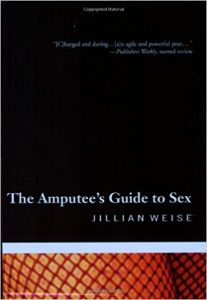 I get comments (concerns? questions?) very often about the choice to refrain from using capitals in my work. Lately, I’ve been attempting to analyze what it’s all about, knowing that I don’t typically like to do things for simple aesthetic pleasure. I mean, ya girl hates Pier 1 and its associated meaningless decor. If it’s not about aesthetics, what is it about?
I get comments (concerns? questions?) very often about the choice to refrain from using capitals in my work. Lately, I’ve been attempting to analyze what it’s all about, knowing that I don’t typically like to do things for simple aesthetic pleasure. I mean, ya girl hates Pier 1 and its associated meaningless decor. If it’s not about aesthetics, what is it about?
During the identity writing exercise in class, I wrote the following things:
who am “i” (I)?
“i” prefers to watch shrek alone in a hotel room rather than attend a cocktail party. “I” will go and wear extroversion like bad perfume.
“i” winces at the sound of rushing water. “I” tells her therapist she’s over it.
“i” is always convinced of being unseen. “I” is a fake brand of assertive
.
“i” tells people what she needs to say. “I” tells people what they want to hear.
& some other semi-dramatic declarations.
Writing seems to access the primitive realities in which the “i” humbly dwells. Living seems like a big game of faking it, especially (perhaps exclusively) in a university setting, where “I” give presentations in fake confidence and drinks up the term “resume builder” like SmartWater. I’ve taken comments from writers I trust about using capitals, but as soon as I do so, it feels off. I’ve come to try and separate the quiet, bold, refreshing honesty of the “i” with the “I” that I must unclasp and throw on the ground like a bra at the end of every long, exhausting weeknight (sorry for the image).
There is a weird divide between who i am when i write and who I am when I meet with professors or walk around the Union like I own the place. I’m sure we all know this feeling, as separating personal from professional is good and necessary. However, i see the distinctions so clearly between “I” and “i,” it’s not even about whether the “i” in the poem is being assertive or passive, it’s about the difference between what“i” says on paper and what “I” would do in real life. I can’t bridge the gaps that exist there.
I’m not sure if this makes sense, and perhaps my attempt at justifying myself proves that this technique isn’t working, and I’m not all convinced that it does. I suppose I will continue to revisit what a poem needs, but at least while I’m trying to get through school, “i” needs to be allowed a platform or i might just go CRAZY.
If y’all have any thoughts, please share them! “i” and “I” would both be glad to hear.

